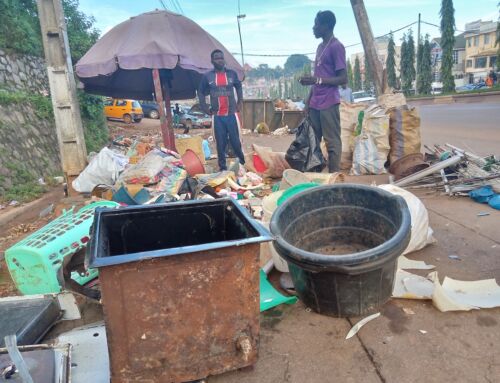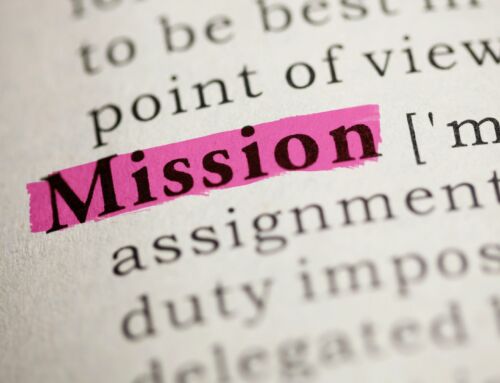How can the Principles of Integral Ecology Help to Assess a Just Transition Policy?
By Elena Šiaudvytienė
September 5, 2023
My EoF Academy research project aims to create a just transition policy assessment framework based on the principles of Catholic social teaching (CST) on integral ecology. Through a review of just transition policy assessment frameworks and their comparison to corresponding principles of ecological transition in CST integral ecology, I am going to devise a new just transition policy assessment framework. The new tool could be used to evaluate the orientation of just transition policies in particular countries towards the common good.

Today climate policy actors and scholars are shifting their focus on factors that could speed climate action because most countries fail to deliver on their promises of the Paris Agreement (UNEP, 2022). The COP26 pointed to just transition as one of such crucial factors (Robins, 2022). Although there are different definitions of just transition, a globally accepted one is provided by the International Labour Organization (ILO) in its Guidelines for a just transition towards environmentally sustainable economies and societies for all (ILO, 2015). According to the document, just transition is a process “towards an environmentally sustainable economy.” This process “needs to be well managed and contribute to the goals of decent work for all, social inclusion, and the eradication of poverty” (ILO, 2015, p. 4). The just transition approach assumes that taking into account the negative social impacts of environmental transitions is the right thing to do and (therefore) can avoid political backlash and social conflicts (Heyen et al., 2021).
It is becoming increasingly clear that achieving the net-zero goal by 2050 will be hardly possible without good just transition policies.
In a similar, but more profound way, Pope Francis, in his message for the World Day of Prayer for the Care of Creation 2023, calls everyone, especially Christian communities alongside changing our hearts and lifestyles, to «transform […] the public policies ruling our societies» (Francis, 2023, para. 7), which entails urging world leaders to ‘listen to science and institute a rapid and just transition to end the era of fossil fuels» (para. 11). Therefore, my research project intends to join the emergent debate about how to conceptualize and design common-good-oriented just transition policies and proposes to create a just transition policy evaluation framework, rooted in the CST principles of integral ecology.
Through my evaluation research, I am joining the EoF efforts in adopting new metrics and assessment frameworks for the common good and designing policies for happiness. My scholarly work also shares the commitment to advocate for such energy transitions that do not exclude anyone, but, on the contrary, address poverty and inequalities, create opportunities for the most vulnerable people to be heard, fully participate, and contribute to the common good.
In my research work, I will review existing just transition policy assessment frameworks. Then I will compare and modify key just transition policy elements and corresponding principles of ecological transition in CST with a focus on key dimensions of a common-good-oriented just transition policy (Annett, 2022; Azetsop & Conversi, 2022; Francis, 2015; Toso, 2020), such as economic ecology, justice, and principles of sociality. At the end of my project, I will propose a new just transition policy evaluation framework.
This proposal is a part of my PhD research at the Faculty of Social Sciences of the Pontifical University of Saint Thomas Aquinas (Angelicum). My doctoral research goal is to carry out an evaluation of Lithuania’s just transition policy theory and design in the light of integral ecology (Bezzi, 2021). The new policy evaluation tool could be later used for just transition policy assessment in other countries.
In conclusion, my EoF Academy research project intends to contribute to the emerging debate on how to evaluate just transition policy orientation towards the common good. Unlike dominant green growth transition paradigms, such as the European Green Deal, which often overlook the needs of the most vulnerable and lack a social focus, CST can guide policies towards prioritizing their needs during the transition towards sustainable economies. Therefore, a new just transition policy assessment framework, rooted in Catholic integral ecology, will help to better understand and address the impact of sustainable transitions on the most vulnerable people as well as join the efforts of scholars and activists who work for alternative and better visions of human flourishing (Rozzoni & Limata, 2022).
References
Annett, A. M. (2022). Cathonomics: How Catholic tradition can create a more just economy. Georgetown University Press.
Azetsop, J., & Conversi, P. (Eds.). (2022). Foundations of integral ecology. Pontificia Univ. Gregoriana.
Bezzi, C. (2021). Manuale di ricerca valutativa (1° edizione). Franco Angeli.
Christie, I., Gunton, R. M., & Hejnowicz, A. P. (2019). Sustainability and the common good: Catholic Social Teaching and ‘Integral Ecology’ as contributions to a framework of social values for sustainability transitions. Sustainability Science, 14(5), 1343–1354. https://doi.org/10.1007/s11625-019-00691-y
Francis PP. (2015). Encyclical letter. Laudato si’: On care for our common home. Vatican Press. https://www.vatican.va/content/dam/francesco/pdf/encyclicals/documents/papa-francesco_20150524_enciclica-laudato-si_en.pdf
Francis PP. (2023). Message for the World Day of Prayer for the Care of Creation. Libreria Editrice Vaticana. https://bit.ly/44BmlIv
Heyen, D. A., Beznea, A., Hünecke, K., & Williams, R. (2021). Measuring a just transition in the EU in the context of the 8th Environment Action Programme: An assessment of existing indicators and gaps at the socio-environmental nexus, with suggestions for the way forward. Oeko-Institut e.V. and Trinomics. https://ec.europa.eu/environment/enveco/growth_jobs_social/pdf/studies/JustTransition_Indicator_Paper_final_clean-2021.pdf
ILO. (2015). Guidelines for a just transition towards environmentally sustainable economies and societies for all. ILO. https://www.ilo.org/wcmsp5/groups/public/—ed_emp/—emp_ent/documents/publication/wcms_432859.pdf
Montmasson-Clair, G. (2021). A policy toolbox for just transitions. Trade & Industrial Policy Strategies. https://www.tips.org.za/research-archive/sustainable-growth/green-economy-2/item/4152-a-policy-toolbox-for-just-transitions
Robins, N. (2022). The just transition: shaping the delivery of the inevitable policy response. https://www.unpri.org/inevitable-policy-response/the-just-transition-shaping-the-delivery-of-the-inevitable-policy-response/9856.article
Rozzoni, S., & Limata, P. (Eds.). (2022). The Economy of Francesco. Un glossario per riparare il linguaggio dell’economia. Città Nuova.
Toso, M. (2020). Ecologia integrale. Dopo il coronavirus. Soc. Coop. Soc. Frate Jacopa.UNEP. (2022). Emissions gap report 2022. http://www.unep.org/resources/emissions-gap-report-2022
Elena Šiaudvytienė
The Economy of Francesco Academy Research fellow for 2023/2024
PhD student at the Faculty of Social Sciences of the Pontifical University of Saint Thomas Aquinas – Angelicum, (Rome, Italy)
Assistant Professor at the Department of International Relations and Development of LCC International University (Klaipėda, Lithuania): https://lcc.lt/staff/elena-siaudvytiene










